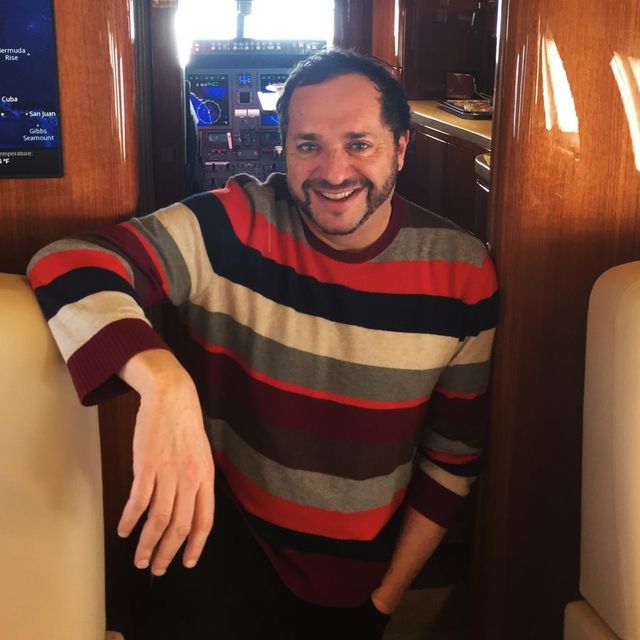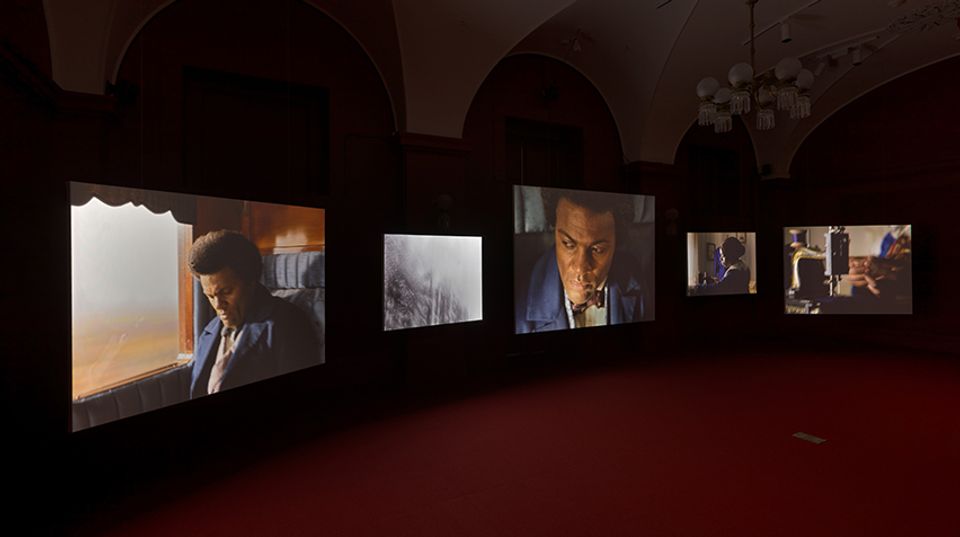
MAGFest, the DC area's Music and Gaming Festival, will bring free-to-play video games to the courtyard as part of the Gamer Family Day on Saturday, August 15, 2015. We interviewed MAGFest's Chief Operating Officer, Nick Marinelli, about MAGFest's history, current projects, and relationship to art.
Eye Level: MAGFest started in 2002 as a non-profit organization run by fans for fans, originally under the name "Mid-Atlantic Gaming Festival." What made you decide the Mid-Atlantic needed a gaming festival, and how were you able to put one together?
Nick Marinelli: Although we've since changed our name to the Music And Gaming Festival in order to better express the content of our event(s), we did indeed start out named the Mid-Atlantic Gaming Festival. When we were first organizing the event, the only gaming events of note that existed in the US were large scale expos for the video game industry to exhibit and market their latest products, and none of them were based on the east coast. Not only was there a shortage of events in the area, but all the ones that did exist elsewhere were focus on industry happenings. We wanted to create an event for gamers to get together as a community and enjoy games, instead of having industry marketing sold to them in an expo environment.
We also wanted to include the rapidly expanding video game music fan community by bringing out bands that specialized in playing live renditions of video game music. The first MAGFest happened in 2002 at a Holiday Inn in Roanake, Virginia, with a modest 300 people in attendance. The original creator cobbled together what local T.V. screens, video game consoles, tables top games, and arcade machines he could, invited some bands, and put on the best event he could muster. Fast forwarding to today, as we prep for our 14th annual event, we've grown to an expected 20,000 for our main event, and have expanded to hold other events year round all over the country.
EL: How do you think video games relate to art?
NM: Games and art are inextricably tied in every facet of their creation. The visual presentation, audio landscape, and story/character writing are all art forms, relating to similar traditional art forms. Going a step further, the technical backbone of games and gameplay mechanics also have a place in the art world. When an architect designs a building, or civil engineer plans a park, their starting points are a restrictive set of building blocks, that is, the very laws of math and physics. While one can argue that simply following those restrictions to create a syntactically and semantically correct construct doesn't make something art, the personal touches the creator chooses in arranging those blocks does. A table, in the strictest sense is a freestanding flat surface, but the carpenter who builds that table can make it into any beautifully creative fashion they choose. Likewise when building a game's code and mechanics, there's a finite set of operations a computer can execute, and a finite amount of ways a human can interact with a controller, but the specific combination that the game creator specifically chose when building their game truly makes it art.
EL: You have an amazing assortment of video game consoles and classic arcade machines. How do you find this equipment and repair or maintain it?
NM: We've amassed a large collection of gaming equipment over the years through painstaking yard sale-ing, ebaying, thrift storing, collector networking, and, in the absolute most dire of circumstances, reluctantly purchasing from large retail stores. Our gaming equipment collection continues to amass at a pace where we find ourselves repeatedly moving into larger and larger warehouse storage spaces to fit it all! The majority of the arcade machines at our events aren't fully owned by us, and are brought by a large network of very generous private collectors who we assist to bring out their collections to our events. All of our equipment is maintained by our vast community of enthusiast volunteers and collectors.
EL: Since its founding, MAGFest has grown a great deal. Could you tell us more about Bit Gen Gamer Fest, MAGStock, and your touring concert series Game Over?
NM: As our main event became more and more popular, people began to ask for more events from us throughout the year. Game Over is a MAGFest sponsored touring concert, which has brought a piece of us all over the country, including Baltimore, Raleigh, Austin, and San Jose, with many more shows in the works.
MAGStock was created to break the mold of typical MAGFest events, and to more resemble a traditional outdoor music festival. It does succeed in resembling one in the same way that a jet engine resembles a ceiling fan; the basic concept is the same, but we've injected so much off-the-wall geekery into it that it's become a genre all of its own, with active gaming and game music coursing through all the campsites.
Bit Gen is an annual summer video game music festival based out of Baltimore that grew up alongside MAGFest, and eventually joined forces with us in 2012 to make it bigger and better than ever. The most recent Bit Gen was presented in conjunction with Artscape, the nation's largest free arts festival, and featured video games and bands being displayed live and a 40 foot tall billboard in Baltimore City.
EL: What is it like to be a part of MAGFest's community?
NM: The best part about our community is that anyone with any kind of tangential or remote interest in any gaming of any type will feel right at home at our events. Our organization promotes awareness, education, and appreciation of all things gaming, including game music, PC games, console games, tabletop tables, board games, card games, arcade games, pinball games, game-themed cinema, game-themed art, game-themed crafts, and game design, Whatever your gaming interest may be, we have representation of it at MAGFest events, and an incredible community at those events ready to greet you with open arms.
Gamer Family Day is this coming Saturday, August 15.


















